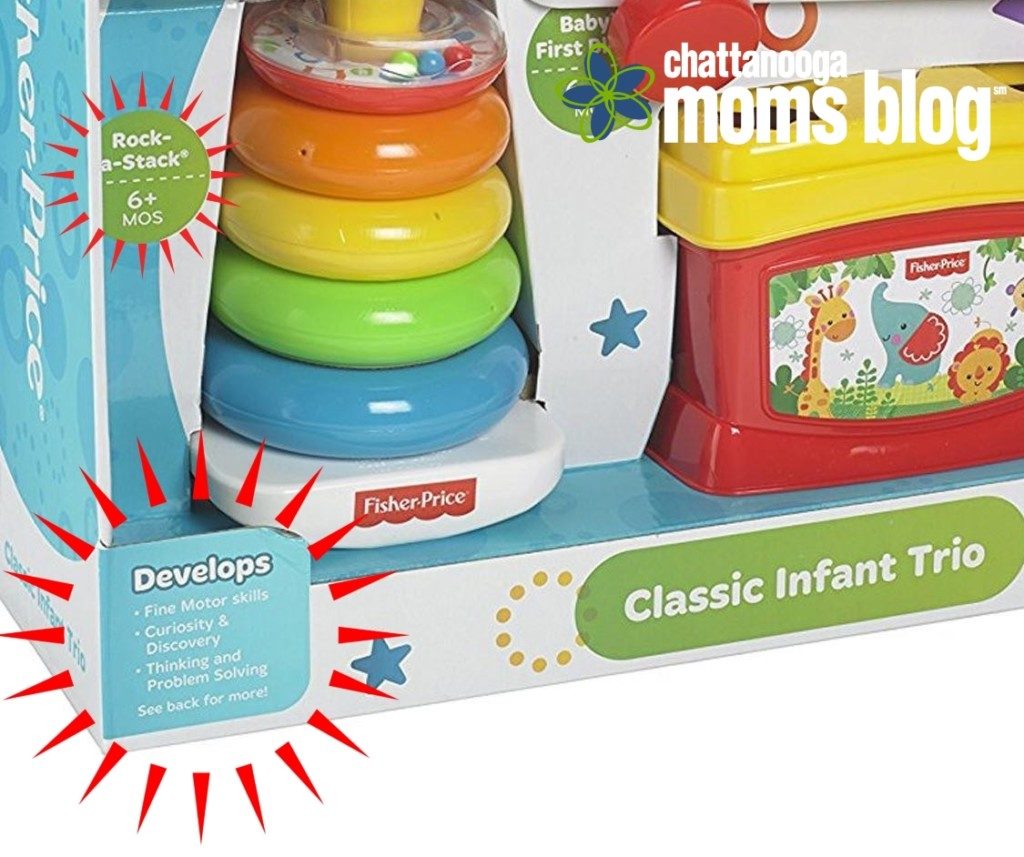
As anyone who knows me can attest to, I live for celebrating the holidays. Every year, we throw holiday parties and attend holiday festivals and bake a lot of holiday cookies. My house is covered in cheesy decorations from Thanksgiving until New Year’s Day and Hallmark movies are basically my love language. I also really enjoy picking out the perfect gift for each member of my family. We live relatively simply the rest of the year, but around the holidays, I just love watching my children’s eyes light up when they unwrap something they are truly excited about. This includes my four-year-old, Rory.

Rory has cerebral palsy and is nonverbal. Sometimes, purchasing a gift for a child with special needs can feel a little bit tricky. Even I feel stumped from time to time. While my two older typically-developing children cannot refrain from letting us know every single toy they desperately need to be under the tree exactly one million times a day, Rory can’t yet share those wishes with us. What I would not give to know the visions that are dancing in that little boy’s head!
However, even though he makes me work for it, I have developed a few tricks for finding what will make my boy happy on Christmas morning. I would love to share them with you.
Do your research
Before purchasing a gift for a child with special needs, take a minute to think about their specific challenges. Does the child have sensory processing issues? Gross or fine motor delays? Is the child a wheelchair user? Does the child still put items in their mouth? Consider these specifics in addition to the child’s interests and hobbies. Often times, the answers to these questions will narrow down your search quite a bit! Once you know what you are looking for, the internet can be your best friend. You can find specific lists of toys for children with visual impairments, autism or cerebral palsy. You can find entire online toy stores dedicated to toys for kids of all abilities! Fat Brain Toys, for instance, has almost anything you can think of for a wide variety of diagnoses. No matter what specific challenges a child faces, you can find ideas for wonderful gifts to get them! You simply need to know what you are looking for.
Consider the developmental age of the child
Children with special needs often develop in different areas at different speeds. My four-year-old’s fine motor skills are similar to a 14-month-old’s, for example, while his gross motor skills and expressive language skills are about the same as a 10-month-old’s. His receptive language skills are farther along and his social skills are worlds beyond that! This can make it a little confusing to find toys that he might enjoy. Thankfully, many toys indicate both an age range as well as a list of skills that the toy is meant to address.

When choosing a toy, try to consider both the developmental age of the child, as well as the chronological age. Many children with developmental delays enjoy toys that may not seem “age-appropriate” and that is okay! If you think the child would enjoy the toy, go for it!
No substitutions, please
Recently, Rory fell in love with The Wiggles. It is the first time that any specific thing has earned his undivided attention! While we have often thought he may enjoy a show similar to The Wiggles, so far, it is The Wiggles alone that has our boy’s heart. Another thing Rory loves is crawling around with stolen shoes on his hands. We often joke that we are going to buy him a whole mess of “hand shoes!” Special interests are a part of the lives of many children with developmental disabilities. Honestly, special interests are a part of many children’s lives, regardless of ability. Sometimes, these interests are a natural avenue for gift-giving. Other times, a child’s special interest may seem a little bit strange. But if you are truly looking to get that sparkle of holiday joy, you can never go wrong by sticking with what someone truly loves, even if this means you find yourself buying a set of pot lids, wrapping up old car keys, or buying multiple pairs of shoes for someone to put on their hands!
Ask someone
If you are finding it challenging to find the perfect gift, it never hurts to ask someone. Many parents, like me, have a list a mile long of all the cool stuff they would love to get their child. I keep an ongoing Amazon wish list of the toy recommendations given to me by Rory’s various therapists. Many of these items are inexpensive items that can be found at any quality toy store and would make a perfect gift. Therapists and teachers may also have some great suggestions for gifts that would work for a specific child. Or perhaps a fellow special needs parent could share some of their own child’s favorite gifts. Don’t be afraid to ask!
Sensory gifts are always a hit!
No matter what specific needs a child has, sensory items are almost universally appreciated. Weighted blankets, fidget toys, twinkly lights, and bubbles are all items that can be put to good use for a variety of children with a variety of needs! I mean, who doesn’t love a good lava lamp or cozy play tent?

Consider an “experience” gift
One of the absolute best gifts that you could give to the special needs child in your life is the gift of inclusion. Many children with disabilities face being excluded from activities that their typically-developing peers are experiencing. Sometimes, this is because the activity is not adaptable to their needs. Other times, it is because it was assumed that the child would not be able to or want to participate, or because the activity truly is something the child would not enjoy. However, all humans of all abilities enjoy feeling wanted and included, and all humans of all abilities have experiences that they love!
There is an “experience” gift that is suitable for any child. You could purchase tickets to one of the many sensory-friendly plays, concerts and movies that are put on throughout the year, or simply arrange to take the child to one of the many events organized for children with special needs! Check out Siskin’s website or the Chattanooga Autism Center for ideas. Depending on the child’s comfort level and needs, you could plan an outing for the child, offer to babysit for an evening (a gift for both the child and their parents!) or simply set aside time to spend a quiet afternoon doing something that the child loves. Even just extending a play date invitation can be very special for a child who does not often receive such invitations. It may take a bit of extra planning and accommodation, but it could mean so much!






















